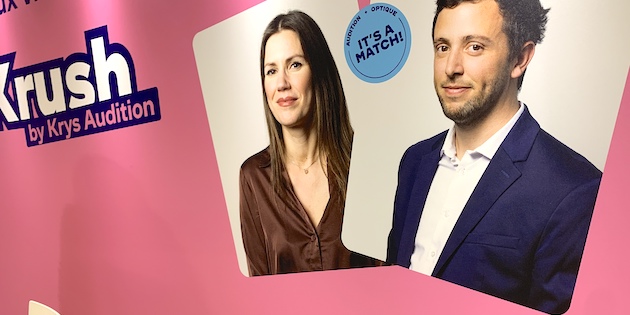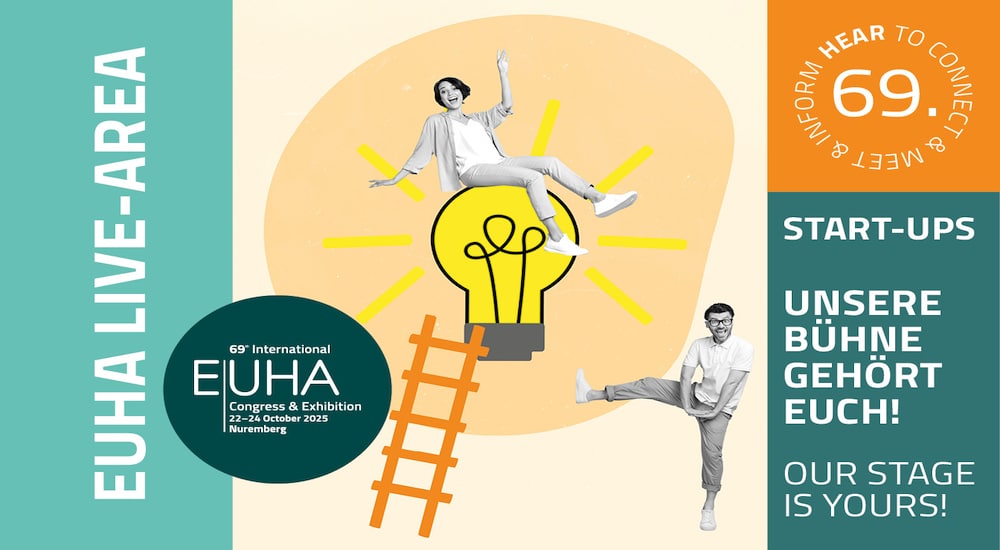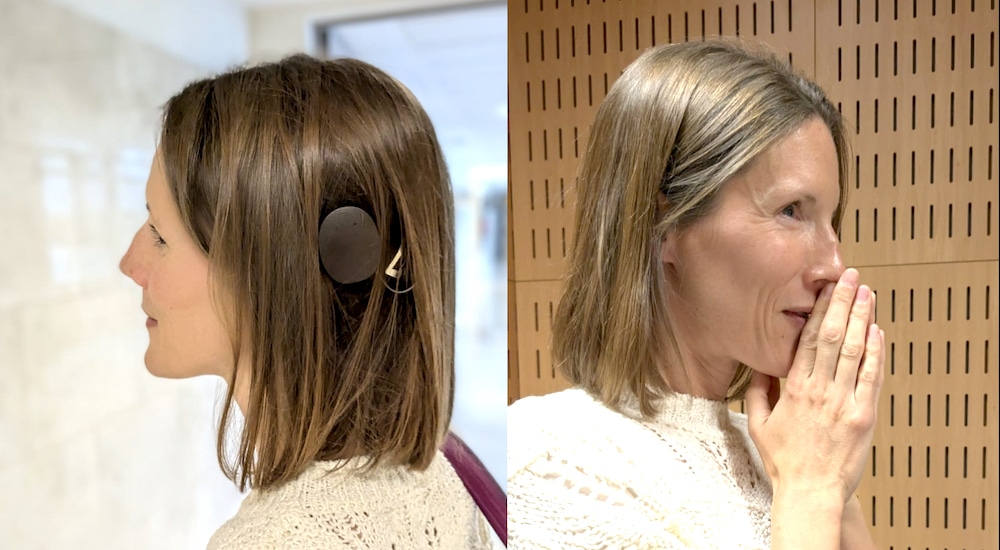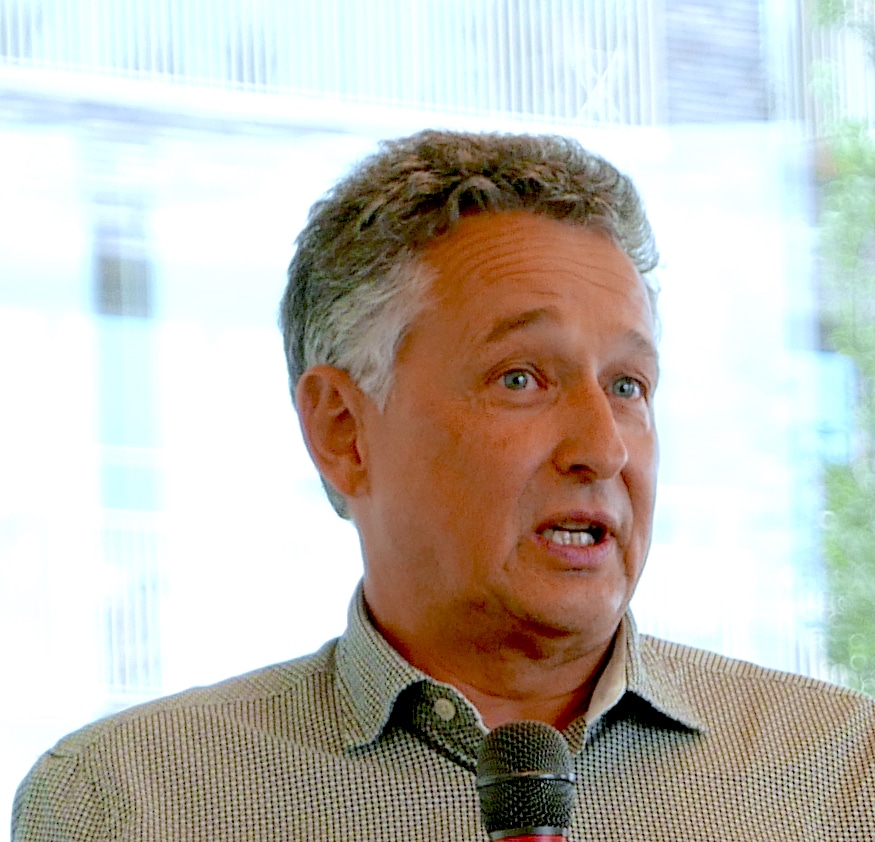France fills audiologist vacancies every which way
Audiology recruitment is a huge challenge right across Europe. But in France, audiology practices can benefit from being part of the EU, and are taking on graduates who went south of the border to get their qualifications. But one hearing care group has turned to a dating app to find the perfect hire.

There is a race for new recruits in France. This has been attributed to a number of causes, among which are an academic numerus clausus that is too restrictive, and a health care reform that multiplies needs. Young professionals are pampered and showered with offers, but their number remains insufficient to fill vacancies.
However, thanks to the arrival of graduates from Spain, employers are now breathing more easily.
French official recognition of qualifications acquired on the other side of the Pyrenees has relieved the pressure on hearing care professionals who urgently need to recruit for their centre. According to François Le Her, VP of the Collège national d’audioprothèse (CNA), more than 330 authorisations to practice have been granted this year. These young audiologists will fill the positions that go unmet by graduates from French schools. Their number is expected to be even higher over the following years.
Experience in practice beats academic preparation
While some deplore this situation, others see it as a godsend that will simplify their lives. “One of the French shortcomings is the fact that we think that training is the key to skills, but these are acquired mainly through practice,” explains Éric Plat, CEO of the Atol optics and audiology chain. “The diploma only certifies technical knowledge, which is important, but not the essence of our profession. I don’t believe that audiologists are intrinsically better in France than in Spain, Belgium or Germany,” he says.
This French professional defends the possibility of incorporating professionals from another country: “Thanks to Spanish graduates, we will be able to attend to the six million French people [with hearing loss]. We need professionals to meet this demand and it will be our role to train them, as we do with the young audiologists coming out of schools in France. France has not been able to provide the number of professionals needed to run our centres, as is also the case for opticians. We are fortunate to be in Europe and to be able to take advantage of the strengths of our neighbours.”
A no-brainer for some owners
For the VivaSon chain, the debate is clear. “Hearing aid dispensers with Spanish qualifications, once they have obtained their equivalence, are authorised to practice in France. There is no debate on whether or not they are legitimised to practice, or to accept them or not,” stresses Michel Touati, the group’s General Manager, who stresses that the incoming recruits practise legally. “Moreover, these graduates are fortunately providing an emergency response to the current context, with a post-reform healthcare market under extreme pressure that the public authorities had not foreseen at all. It is therefore logical for us to include these profiles in our recruitment, as do all the players: brands, independents, mutuals, and CNA members.”
Michel Touati acknowledges that there are big differences in the level of newcomers. “There are good people and not so good people but, as in French schools, it is up to us to identify the best elements during recruitment,“ said the executive, who underlined the quality of a group training approach that covers initial training, monthly e-learnings, training modules, technical reinforcements, complete sessions…”This allows us to help our hearing care professionals grow, wherever they come from.”
Fingers point at poor education planning
For Arthur Havis, CEO of Écouter Voir, the problem lies mainly with French schools. “There is no reason for a student to go abroad if he can find a place to be trained in France, with the quality standards appropriate to the profession,” he argues. “In a booming market, it would be a shame to ignore graduates who have the right to practice. They should not be rejected because they may be highly motivated and want to establish themselves in the profession in the long term,” continues Havis, defending a “case-by-case strategy”.
Others, such as Laurent Lussato, co-founder of Ideal Audition, believe France lost control of training because of a fear of competition. “If, at the beginning, we refused to hire Spanish graduates because we thought that the technical training was not up to our expectations, we have revised our position somewhat. We have now hired three audiologists by this method in one year,” Lussato reveals, explaning that while his company has an extremely selective approach, if the decision is between students with the same profile, “we give preference to graduates from French schools”.
“But some do not want to come to us,” he admits, “so we make our choice elsewhere, by force of circumstances, because we hire 20 to 25 people a year”.
Find your perfect match…and a decent hearing care professional
In facing these recruitment difficulties, the Krys chain is responding with humor and levity by offering a dating site for hearing aid practitioners and opticians. It may be leaning on all the codes used by dating sites, but this system of contact remains purely professional, says the company.
Krys is struggling to recruit hearing aid practitioners, like everyone else in the sector. “We wanted a disruptive communication”, explains Vincent Donneger, head of operations at Krys Audition, “and we especially wanted to create human stories around the professional meeting,” he explains.
As a result, the cooperative brand has set up a dating site, Krush by Krys Audition, which was launched concurrently with the big French conference, the Congrès des audioprothésistes 2023, held in March. Employing the lures of a dating system, its objective is to set up professional meetings.
Opticians can meet hearing aid practitioners, who can also “match” with other hearing aid practitioners, and opticians with opticians, “in the same way that dating sites are adapted to heterosexuals and homosexuals,” points out Vincent Donneger.
When creating their profile, users indicate the professional values that are important to them, their project, the quality of the equipment they use, and a phrase that inspires them.
All the models used in the posters are people who are actually part of the Krys network. In the photo heading this article, we see Isabel Florès, a hearing aid specialist, and Bertrand Foin, an optician.
The “couple” work together in Saint-Laurent-du-Var, near Nice. At Krys, the people behind this project are well aware that this entertaining way of playing around with recruitment is quite audacious. “We weren’t sure what reactions we would get to this new campaign, but we are delighted because many hearing aid practitioners have come to see us to congratulate us on the operation,” continues Vincent Donneger.
On the website created for this operation – krush-by-krysaudition.fr – Krys audiologists and opticians relate the story of their encounter in a podcast, as does Isabel, the Spanish audiologist from Saint-Laurent-du-Var who arrived in France eight years earlier and got together with Bertrand last year. Another dating narrator is Romain, an audiologist from Saint-André-les-Vergers, who hooked up with Léa five years earlier. Each one speaks about the other with plenty of human warmth.
It remains to be seen, however, what impact this will have on the difficult problem of recruiting hearing aid practitioners. Nevertheless, putting some imagination into such approaches is an exportable idea.
Source: Audio Infos France/Audiology News UK issue 02 May-June 2023




